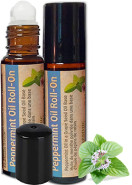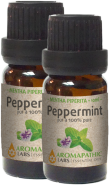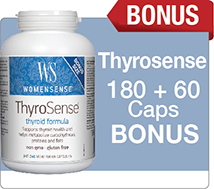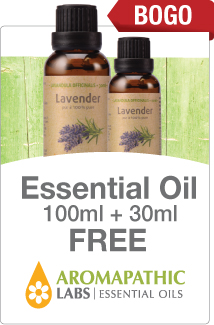Peppermint Oil
What Is Peppermint Oil?
Did you know that peppermint (Mentha piperita) is a hybrid of mint, a cross between water mint and spearmint, which is indigenous to Europe and the Middle East? Peppermint is slightly different from other plants in the mint family and is composed of over 30% menthol and up to 0.2% carvone, a substance responsible for much of its therapeutic potential. Menthol, on the other hand, is known to help ease tension headaches and muscular aches and pains. Read more >-
 Aromapathic Labs Peppermint oil is made from the fresh leaves from the Peppermint herb. After harvesting, its leaves are crushed and then steam distilled, giving us the bold, minty and fresh scent of a high quality peppermint oil. Most essential oils need to be mixed with a carrier oil for topcial application, so this convenient roll-o...Aromapathic Labs Peppermint oil is made from the fresh leaves from the Peppermint herb. After harvesting, its leaves are crushed and then steam distilled, giving us the bold, minty and fresh scent of a high quality peppermint oil. Most essential oils need to be mixed with a carrier oil for topcial application, so this convenient roll-on features pure Indian peppermint oil already mixed in a base of Chilean grape seed oil. The easy to use roll-on dispenser makes it perfect for keeping in your car, travel bag, or pocket, ready for whenever you need topical peppermint.+ Earn 9 Reward Points
Aromapathic Labs Peppermint oil is made from the fresh leaves from the Peppermint herb. After harvesting, its leaves are crushed and then steam distilled, giving us the bold, minty and fresh scent of a high quality peppermint oil. Most essential oils need to be mixed with a carrier oil for topcial application, so this convenient roll-o...Aromapathic Labs Peppermint oil is made from the fresh leaves from the Peppermint herb. After harvesting, its leaves are crushed and then steam distilled, giving us the bold, minty and fresh scent of a high quality peppermint oil. Most essential oils need to be mixed with a carrier oil for topcial application, so this convenient roll-on features pure Indian peppermint oil already mixed in a base of Chilean grape seed oil. The easy to use roll-on dispenser makes it perfect for keeping in your car, travel bag, or pocket, ready for whenever you need topical peppermint.+ Earn 9 Reward PointsSale: $9.99
Reg.: $11.99 (Save $2.00)
Out of Stock(Click Add to Select Bonus)
-
 Aromapathic Labs Peppermint oil is made from the leaves of the peppermint herb. After harvesting, the leaves are crushed and steam distilled, giving us the plesant, minty, fresh scent of a high quality peppermint oil. Essential oils need to be mixed with a carrier oil for topical application, simply mix 12 drops of this pure Indian Pep...Aromapathic Labs Peppermint oil is made from the leaves of the peppermint herb. After harvesting, the leaves are crushed and steam distilled, giving us the plesant, minty, fresh scent of a high quality peppermint oil. Essential oils need to be mixed with a carrier oil for topical application, simply mix 12 drops of this pure Indian Peppermint oil to every 30ml of your favourite carrier oil, or mix with 30ml water to diffuse. [LIQUID]+ Earn 4 Reward Points
Aromapathic Labs Peppermint oil is made from the leaves of the peppermint herb. After harvesting, the leaves are crushed and steam distilled, giving us the plesant, minty, fresh scent of a high quality peppermint oil. Essential oils need to be mixed with a carrier oil for topical application, simply mix 12 drops of this pure Indian Pep...Aromapathic Labs Peppermint oil is made from the leaves of the peppermint herb. After harvesting, the leaves are crushed and steam distilled, giving us the plesant, minty, fresh scent of a high quality peppermint oil. Essential oils need to be mixed with a carrier oil for topical application, simply mix 12 drops of this pure Indian Peppermint oil to every 30ml of your favourite carrier oil, or mix with 30ml water to diffuse. [LIQUID]+ Earn 4 Reward PointsSale: $4.99
Reg.: $5.99 (Save $1.00)
Out of Stock(Click Add to Select Bonus)
What is Peppermint Essential Oil?
Did you know that peppermint (Mentha piperita) is a hybrid of mint, a cross between water mint and spearmint, which is indigenous to Europe and the Middle East? Peppermint is slightly different from other plants in the mint family and is composed of over 30% menthol and up to 0.2% carvone, a substance responsible for much of its therapeutic potential. Menthol, on the other hand, is known to help ease tension headaches and muscular aches and pains. Peppermint is extremely popular in all sorts of applications, from culinary (including gums, breath mints, and breath strips) to over-the-counter medications, skincare, household cleaning, and, of course, aromatherapy as an essential oil.
According to statistics, worldwide peppermint production in 2020 amounted to 48,437 tonnes, 83% of which was produced by Morocco and 14% by Argentina. Peppermint can also be found naturally in North America and Europe.
Fragrance-wise, peppermint oil is fresh, sharp, and minty, with a very distinct menthol note. Its aroma is often described as reminiscent of peppermint candy but more fragrant. It blends exceptionally well with oregano, marjoram, cypress, eucalyptus, geranium, grapefruit, lavender, lemon, rosemary, and tea tree oil for use in all sorts of aromatherapy applications.
Benefits of Peppermint Essential Oil
- Helps Relieve Allergy/Asthma Symptoms
- Improves Skin Health
- Natural Bug Repellant
- Promotes Digestive Health
- Soothes Aches & Pains
- Stimulating – Boosts Energy & Exercise Performance
Therapeutic Properties of Peppermint Essential Oil
Peppermint essential oil has myriad possible uses, including in diffusion, added to a water bottle and spritzed throughout the room, added to a carrier oil and massaged into the skin, or added to all sorts of DIY skincare and household cleaning recipes. When applied topically, it is especially effective at alleviating digestive upset and nausea, relieving respiratory ailments including allergies, asthma, and symptoms of upper respiratory tract infections, and treating migraine headaches. It’s also wonderful for promoting skin health thanks to its antiseptic and antimicrobial properties and demonstrated ability to balance oil production. Peppermint oil can help control blackheads, balance greasy skin, soothe skin inflammation (including eczema), relieve dry, itchy skin, and help accelerate sunburn healing.
Using Essential Oils
Peppermint essential oil is very intense and far more concentrated than most other essential oils, so care is required when blending the oil for topical use.
Also, as effective and versatile as peppermint oil is, it isn’t appropriate for everyone. While peppermint essential oil should never been ingested, it is not advised in people who have a hiatus hernia, gastroesophageal reflux disease (GERD), or an irregular heartbeat (arrhythmia). In addition, those on antacids, H2 blockers, and proton pump inhibitors should speak to their healthcare practitioner before using peppermint oil. Last but certainly not least, diffusing peppermint can be toxic to pets like dogs and cats.
Back to Top ↑





















